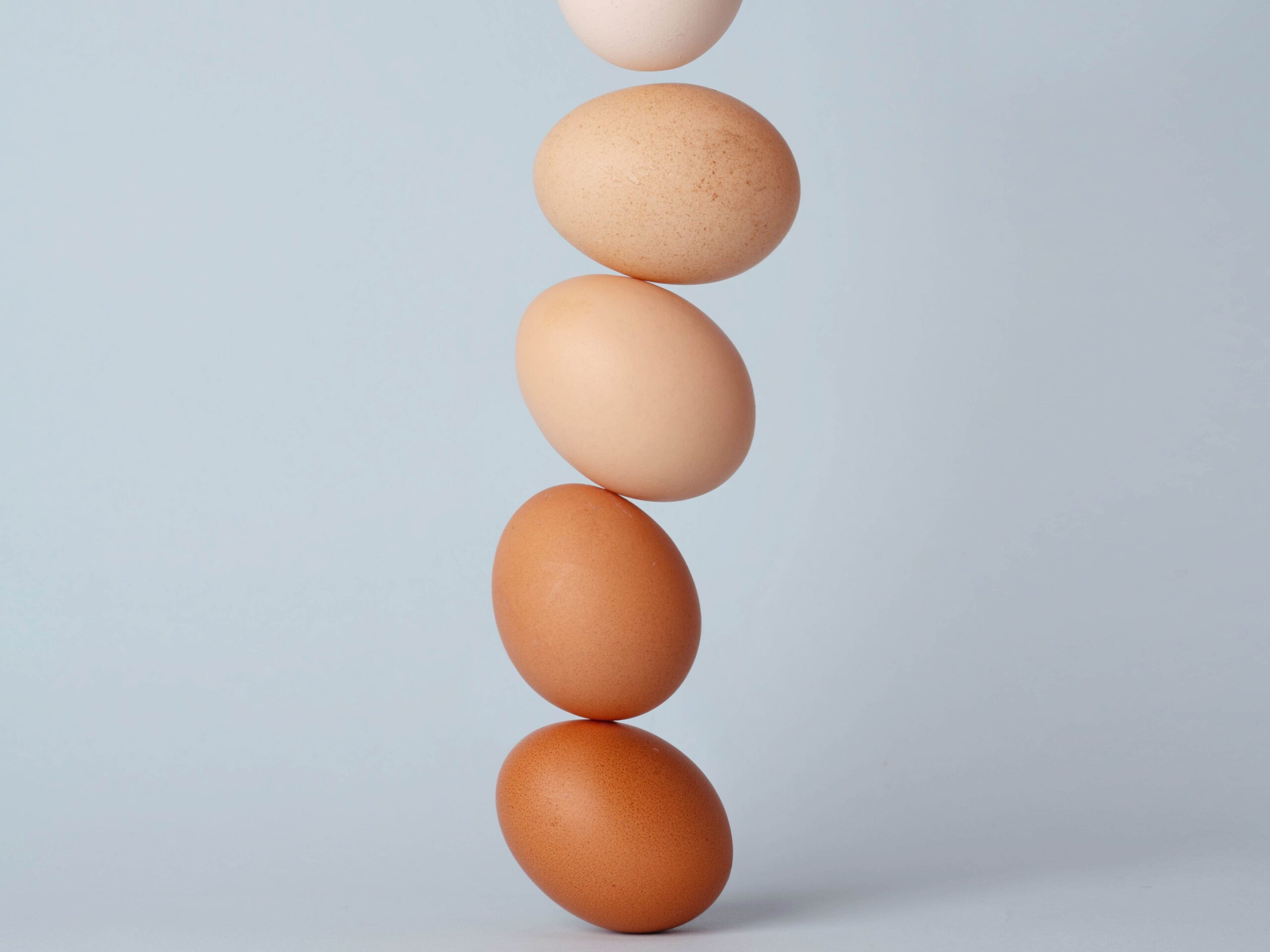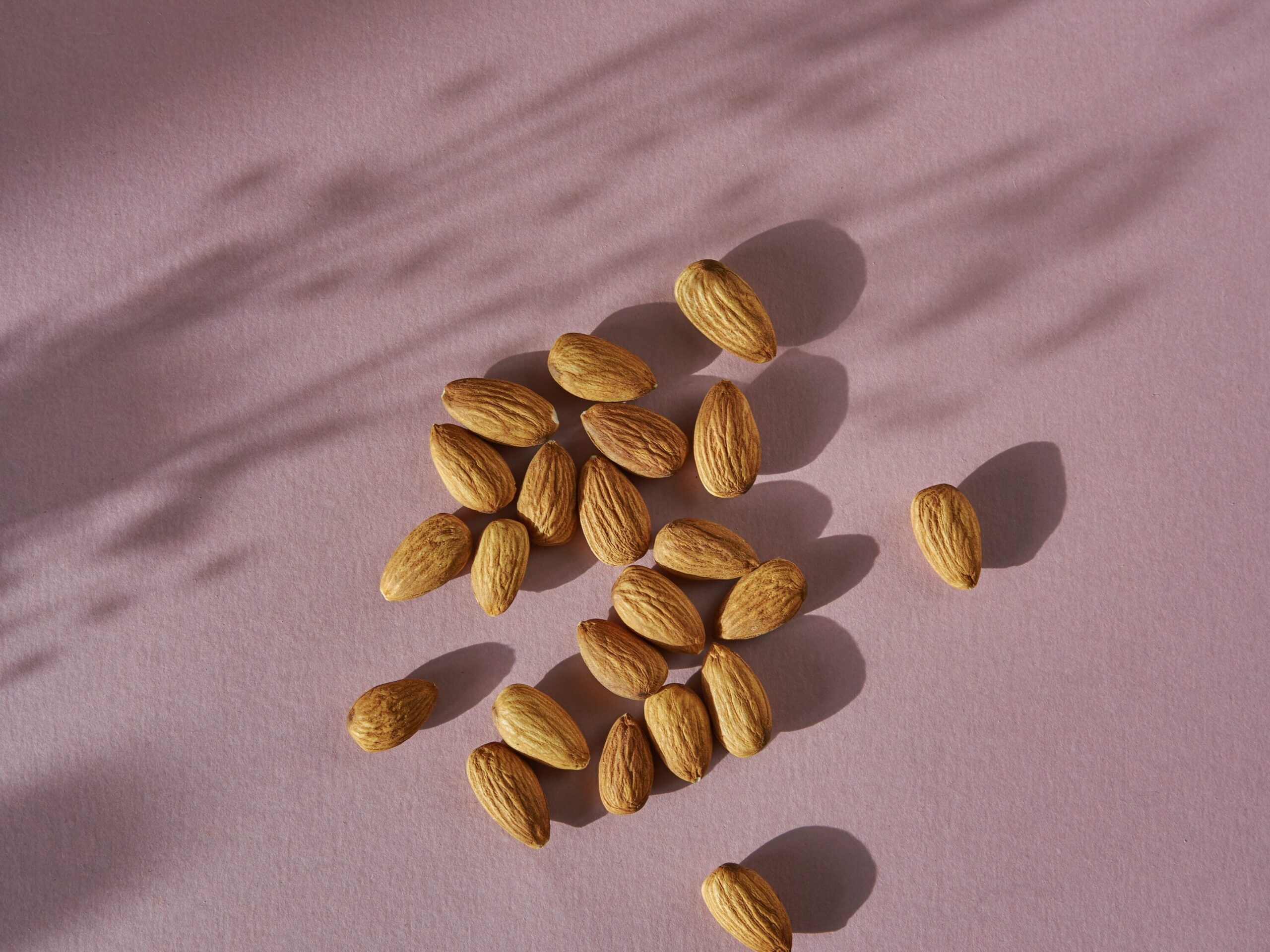Sometimes, we just need things to be simple. Whether you are just beginning to consider conceiving or if you’re already on the fertility journey, these 8 simple food swaps are clear, easy, and can go a long way in supporting your hormone and menstrual health.
But let me say this again for the people in the back – there is no “one diet” or single food that will make or break your hormones. Instead, focusing on whole foods, incorporating a diversity of plants and choosing high quality protein and fats, alongside stress management, movement, and other lifestyle factors will be what influences your fertility picture.
So with that mind, consider these swaps as a way to upgrade your current foundation…
1. HIGH CARB BREAKFAST –> HIGH PROTEIN BREAKFAST
Sounds simple, but it can go a long way. Our cortisol is highest in the morning, and when we add refined carbs or high sugar foods on top of that, it is a recipe for blood sugar havoc. Our blood sugar is incredibly important for our hormone balance, so one of the first steps of supporting our hormones and our fertility is by aiming for steady energy/blood sugar levels. Instead, aim for 20-30 g protein in the morning as a way to support your stress response, your blood sugar, and thus your hormones.
To keep it simple, choose a savory breakfast (which tends to be high protein) instead of a sweet one (which is generally high carb). This means instead of pancakes or waffles, go for those certified humane eggs + a veggie hash; that toast with avo and wild salmon; or Greek yogurt with some stewed fruit and hemp seeds + walnuts.

2. LOW FAT YOGURT –> FULL FAT YOGURT
You heard me right. We’re getting off of that “low fat” “no fat” craze. Fat is incredibly important for our menstrual cycle, working as the building blocks of our hormones. If you are in the process of trying to get pregnant or balancing your hormones, you’ll want to make sure that you are focusing on getting in those healthy, whole food fats daily. When it comes to dairy, the same applies.
In fact, studies have shown that low fat dairy actually increases anovulation (missed ovulation) risk compared to full fat dairy. Full fat dairy not only contains calcium, but a healthy type of fat known as butyric acid, and enough fat to help our body absorb those fat-soluble vitamins found in milk, like vitamin A. The key, though, is in choosing organic and grass-fed full fat dairy to ensure high quality fats free from synthetic hormones and other factors that could harm our hormones.
3. PROTEIN POWDER –> SEED AND NUT BUTTERS
Okay so this one is not necessarily a 1:1 trade, but it represents the needed shift from processed/powdered products and towards whole food sources of nutrients.
Protein powders have become all the rage – but really, what are they? An ultra-processed food that has continuously tested high for heavy metals, that has not been around long enough to know the long term impacts on the body, and that often contains additives and sweeteners.
So instead of adding protein powders to those smoothies or oatmeals, let’s opt for a whole food form of fat and protein. The easiest swap is to start including seed and nut butters, like tahini or almond butter. While not as dense of a protein source as protein powder, they are full of healthful nutrients, like zinc and vitamin E, which can support fertility. Plus, nuts and seeds contain healthy monounsaturated fats and even some polyunsaturated fats, all of which are supportive of our hormones. Looking for more info or ways to include seeds? Check out this article.

4. COFFEE –> TEA
The role of coffee in fertility and hormone health remains contentious. However, I feel like common sense can quickly lead us to a general understanding.
When it comes to fertility, we are trying to lower stress, to support our nervous system and hormones, and help the body feel safe and nourished.With that in mind, notice how you feel after you drink coffee now – for most of us, we will feel jittery, anxious, “jacked up” on energy. Not exactly the calm we’re trying to evoke in the fertility picture. While there’s still not a consensus on how coffee may impact fertility, many studies have shown that coffee can impact our hormones and potentially alter estrogen levels. Moreover, it can further impact our sleep and our vitamin and nutrient status, both of which can inadvertently impact our hormones.
So why not go with a safer, calmer choice. Choose tea (even matcha for that caffeine boost) in place of your morning Joe when possible. Go for those herbal blends, or green or black tea for added antioxidant benefits.
5. FAKE MEAT/RED MEAT –> BEANS & LEGUMES
Red meat has consistently been shown to be inflammatory and linked to disease, from CVD to cancer. While there is an argument to be made about the difference between high quality, organic, grass-fed meat versus conventional, generally speaking red meat has been shown to negatively impact fertility.
Red and processed meat (i.e. hot dogs, sausages, etc.) may also contain trans fats, which are harmful fats that have consistently been shown to negatively impact the body.
But now that those burgers are out, it does not meant that fake meat, like the Impossible Burger and Beyond, are the next choice. These products also contain high levels of saturated fat and synthetic “ingredients” and additives. While they may be marketed as a more environmentally friendly choice (and even that is iffy), they are in way a healthier alternative.
Instead, let’s move towards those whole food plant-based options, like legumes. Legumes contain protein, fiber, and phytoestrogens, all of which can support fertility.
6. TUNA –> SALMON
Fish is an incredible source of omega-3 fatty acids, a type of fat that can support an anti-inflammatory effect in the body, and aid in fertility and ovulation. However, where we get our omega-3 from matters.
Tuna, while a fish that has some levels of these healthy fats, is incredibly high in the heavy metal mercury. Mercury can can act as both an endocrine disruptor and cause issues with our thyroid, impacting our body’s hormones and metabolism.
Instead, opt for wild, cold-water, low mercury, fatty fish, like salmon. Salmon is rich in omega-3 fatty acids while being very low in mercury. A win-win all around. Just make sure to choose wild when possible, as wild fish tends to be higher in nutrients like DHA compared to farmed fish, and are free from dyes and additives.
7. FRENCH FRIES –> BAKED POTATO WEDGES
French fries and other deep fried foods end up being high in a type of harmful fat known as trans fat. When we deep fry a food, the oil is brought to an extremely high temperature, resulting in an oxidation process that creates trans fat. Trans fats are so harmful to health that they have actually been outlawed as a food additive.
Plus, trans fats have consistently been shown to impair fertility, with even a 2% increase in calories from trans fats instead of carbs increasing infertility risk by 73%. So if you are trying to conceive, you will benefit greatly from limiting those deep fried foods and any processed/packaged products that contain “partially hydrogenated oils.”
Instead, opt for baked or lightly fried options, such as baked potatoes wedges or pan roasted potatoes. This option will still provide you with that crisp you’re craving while supporting your overall hormone health by focusing on a whole food source of carbs.
8. WHITE FLOUR (BREAD, PASTA) –> FARRO, QUINOA OR OATS
White flour, often found in refined wheat products like pasta, bread, cakes, muffins, bagels, can negatively impact our blood sugar levels and our hormones. These products contain highly refined wheat which has been stripped of its fiber and naturally occurring vitamins and minerals. As a result, it leaves you with a high-carb, blood sugar spiking product that is fairly nutrient devoid.
Instead, opt for whole grain options, such as whole wheat bread, farro, quinoa or oats. These foods still contain their outer shell known as bran and thus fiber, along with their inner seed called the germ which contains those fertility supportive B vitamins.
I recommend grains like oats and quinoa as they tend to have that extra nutritive benefits. Quinoa contains a higher level of essential amino acids, while oats contain a specific type of fiber that can help support blood cholesterol levels. However, any whole-grain products, be it wheat based or another cereal, will be beneficial to health.
THE TAKEAWAY
When in doubt, eat food as nature intended you to. Choose those whole food, minimally processed products. Go for the wild, grass-fed and certified humane + organic options. Choose those fruits and vegetables, the whole grains, the healthy fats from avocados to 100% grass fed ghee. Fertility will best be supported when you are supporting your overall health through a nourishing, diverse and abundant diet.
Looking for more help? Book a discovery call to learn how our 1:1 coaching can best support your fertility journey.
Written By: Amanda Wahlstedt, RDN

share this post >>
share this post >>